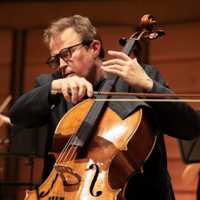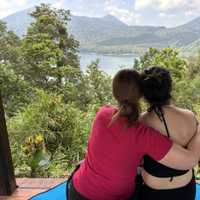Nicholas Menner is an electrician from Goolwa, South Australia who worked with Médecins Sans Frontières/Doctors Without Borders (MSF) in Malawi in mid-2019. He was involved in constructing the new operating theatre and inpatient ward opened in Blantyre in December 2019 to begin surgical treatment for cancer patients.
What led you to apply for a role with MSF?
I wanted the ‘why’ in my work to be more important than the ‘what’. I knew my skills, knowledge and ability as an electrician could be beneficial to people with fewer resources and in more difficult circumstances than myself. MSF’s medical humanitarian work, with its combination of ambitious passion and realistic objectives, really appealed to me.
Your first assignment with MSF was in Malawi. What was the focus of the project?
In Malawi, which has the world’s highest cervical cancer mortality (based on current estimates), MSF runs a unique project: a comprehensive cervical cancer project providing care for women at all stages of the illness. This includes primary and secondary prevention and tertiary care. Between health centres in Chiradzulu district and a hospital and health centre in Blantyre, the capital, we aim to vaccinate to prevent, screen to diagnose, treat to cure, provide palliative care to comfort, and talk to educate.
What did a typical day’s work for you look like?
I was involved in constructing MSF’s new operating theatre and inpatient ward in the hospital in Blantyre, which were opened to begin surgical treatment for patients who need it. As an electrician in the construction team, I worked with local contractors to ensure our electrical installations and orientation met the needs of our medical team. I also worked on upgrading and extending our pharmacy in Chiradzulu.
The vast range of needs meant every day brought a new challenge. One day I would be focused on energy consumption loads, cable selection, generator sizing and switchboard safety, and the next day I would be reading up on the installation requirements and calibration of biomedical equipment. Add to that pharmacy cold chain (a system to keep drugs at the right temperature until they reach the patient), ventilation and cooling systems, lighting specifications… there was always something to keep me occupied.
What did you take away from this assignment?
Experiencing the reality of people’s daily struggles, in a place with such few resources and severe barriers to healthcare, was challenging. We see many women come late for care with very advanced cancer, often due to a lack of knowledge of the disease in the community. Money limitations also make it difficult for women to travel for medical care. Being exposed to their situation motivated me to get results for our medical teams, the women they treat and their families.
It was also rewarding to work alongside my Malawian colleagues, and to assist them to have a better understanding of electrical safety, what the risks are and how to eliminate or reduce them.
What advice would you give to others considering a role with MSF?
The reality of this type of work is there are no easy solutions: you may not see the effects of your efforts as clearly or quickly as you would like. The trials of living among different cultures and surroundings, away from loved ones and with unfamiliar restrictions and challenges can sometimes seem overwhelming. But if you keep at it, your work will eventually be beneficial to someone, whether it be through longevity, quality, comfort or hope. If you keep coming back to the ‘why’ you are there, this reminds you it is all worth it.
Visit https://msf.org.au/join-our-team/work-overseas for more information about working with MSF overseas.

Share "Profile: Nicholas Menner Médecins Sans Frontières"
Copy










